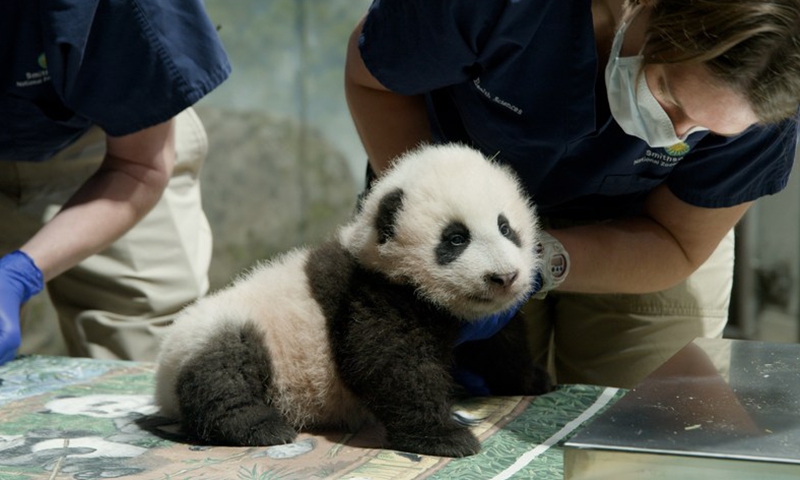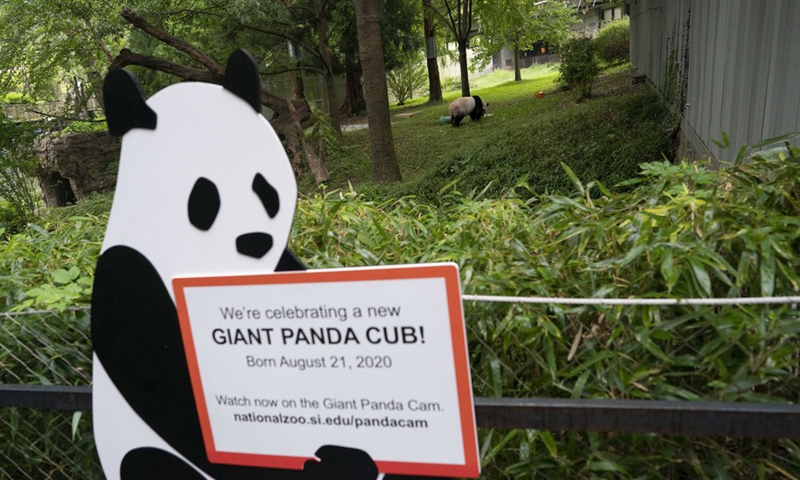Giant panda cub "Xiao Qi Ji" takes first steps -- US zoo
Source: Xinhua Published: 2020/12/6 13:50:39

Undated photo taken on November, 2020 shows the giant panda cub "Xiao Qi Ji" at Smithsonian's National Zoo in Washington, D.C., the United States. (Smithsonian's National Zoo/Handout via Xinhua)
US-born giant panda cub "Xiao Qi Ji" has taken his first steps, according to the Smithsonian's National Zoo.
The "big milestone" occurred on Thanksgiving, which fell on Nov. 26, when the male cub was three months and five days old, Laurie Thompson, the National Zoo's assistant curator of giant pandas, wrote in an update published on Friday.
"That morning, he rested just outside the den while his mother Mei Xiang slept inside," Thompson observed. "After months of practice, he positioned all four feet beneath him and took a few wobbly steps toward her before toppling over."
Xiao Qi Ji has been seen practicing his walking skills from time to time in the mornings since then, when Mei Xiang brings him from the den into their large indoor enclosures, the assistant curator added.
The latest veterinary exam showed Xiao Qi Ji, who's making good gains, weighed 5.66 kilograms.
From the tip of his nose to the base of his tail, he measured 65 centimeters and his abdominal girth reached 49 centimeters.

Giant panda Tian Tian is seen at the Smithsonian's National Zoo in Washington, D.C., the United States, Aug. 22, 2020. Mei Xiang was artificially inseminated in March this year with frozen semen collected from Tian Tian. (Xinhua/Liu Jie)
Xiao Qi Ji was born on Aug. 21 to mother Mei Xiang and father Tian Tian, who's also living in the Washington, D.C. zoo.
The birth of Xiao Qi Ji, which literally means "little miracle" in English, "offered the world a much-needed moment of joy amidst the COVID-19 pandemic," the National Zoo said in a release late last month when announcing his name.
"His name reflects the extraordinary circumstances under which he was born and celebrates the collaboration between colleagues who strive to conserve this species," the release stressed.
The Smithsonian's National Zoo, part of the Smithsonian Institution, a renowned US museum and research complex, has had a cooperative breeding agreement with the China Wildlife Conservation Association.
Due to the pandemic, the US zoo is temporarily closed to the public.
Posted in: AMERICAS